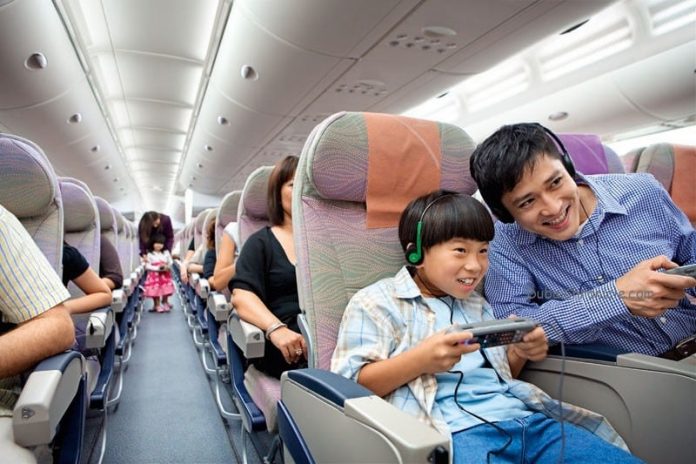
Global passenger traffic data for June shows that demand (measured in revenue passenger kilometers or RPKs) rose by 5.2% compared to the year-ago period. This was up slightly from the 4.8% increase recorded in May (revised). However, the upward trend in seasonally-adjusted traffic has moderated since January. June capacity (available seat kilometers or ASKs) increased by 5.6%, and load factor slipped 0.3 percentage points to 80.7%.
“The demand for travel continues to increase, but at a slower pace. The fragile and uncertain economic backdrop, political shocks and a wave of terrorist attacks are all contributing to a softer demand environment,” said Tony Tyler, IATA’s Director General and CEO.
June international passenger demand rose 5.0% compared to June 2015. All regions recorded growth, led by airlines in Latin America. Capacity climbed 6.4%, causing load factor to slide 1.1 percentage points to 79.4%.
- Asia-Pacific airlines’ June traffic increased 8.2% compared to the year-ago period. However, most of the growth relates to the strong upward trend in traffic seen in the final months of 2015 and into 2016, with June demand barely higher than in February. This could be a natural pause, but possibly is also a sign of Asian passengers being put off travel by terrorism in Europe. Capacity rose 7.3% and load factor inched up 0.6 percentage points to 78.2%
- European carriers saw demand rise 2.1%, the smallest increase among regions, reflecting the negative impact of recent terrorism. While demand tends to recover reasonably quickly after such events, the repeated nature of the attacks may have a more lasting impact. Capacity climbed 3.4% and load factor slipped 1.1 percentage points to 83.3%
- Middle Eastern carriers posted a 7.5% traffic increase in June, which was well down on the double-digit growth recorded earlier in the year. In part this could be owing to the timing of Ramadan, which tends to depress traffic growth. Capacity rose 14.3%, which caused load factor to dive 4.4 percentage points to 69.9%
- North American airlines’ demand rose 4.0% compared to June a year ago, which was well up on the 0.5% year-over-year growth recorded in May. Capacity climbed 4.7%, causing load factor to dip 0.6 percentage points to 84.3%, still the highest among regions
- Latin American airlines experienced an 8.8% rise in demand compared to the same month last year, suggesting that carriers there have flown out of the soft patch seen in the first quarter. Capacity increased by 5.2% and load factor rose 2.7 percentage points to 82.4%
- African airlines’ traffic climbed 4.7% in June, an indication that the strong upward trend in demand that began in the second half of 2015 has paused. Capacity rose 7.4%, with the result that load factor slipped 1.7 percentage points to 64.4%, lowest among regions.
Domestic Passenger Markets
Demand for domestic travel climbed 5.7% in June compared to June 2015, while capacity increased 4.3%, causing load factor to rise 1.1 percentage points to 83.2%. All markets reported demand increases with the exception of Brazil.
- India continued to lead all markets with a 23.3% rise in domestic traffic, propelled by strong growth in real consumer spending as well as by the fact that airlines are adding airport pairs and frequencies.
- Australia’s airlines have been operating fewer frequencies and down-gauging aircraft in recent months, contributing to a 3.6% decline in capacity. The result is that load factor surged 4.9 percentage points to 79.4% on a 2.8% increase in traffic,
The Bottom Line: “The latest figures show that aviation and aviation related tourism delivers $2.7 trillion in economic impact and supports some 62.7 million jobs worldwide. It is a powerful force for good in our world. It is too soon to know whether recent terrorist attacks will have a long-term negative influence on demand, nor what will be the impact of Brexit and the events in Turkey. But it is vital that governments recognize and support aviation’s ability to contribute to global economic well-being and better understanding across cultural and political borders,” said Tyler.




































